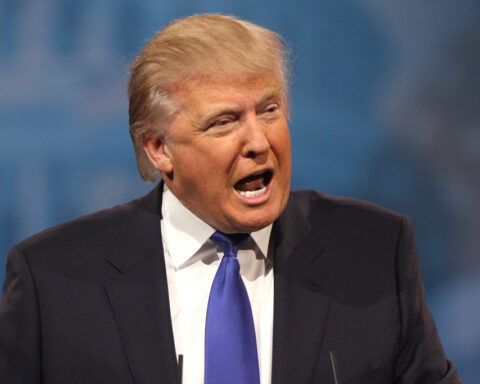President Donald J. Trump on Friday reportedly brokered what he hailed as a landmark “peace deal” between Azerbaijan and Armenia, ending nearly 40 years of conflict in the volatile South Caucasus and securing a major geopolitical win for the United States.
The joint peace declaration, signed in Washington by Azerbaijani President Ilham Aliyev and Armenian Prime Minister Nikol Pashinyan, grants the U.S. exclusive rights to develop a critical transit route through Armenia’s Zangezur corridor.
The deal delivers a sharp blow to the long-standing ambitions of Russia and Iran, both of which have sought dominance over the region’s trade and energy flows.
Under the agreement, the corridor will be officially named the Trump Route for International Peace and Prosperity, or TRIPP. U.S. control of the route will last for “up to 99 years,” according to President Trump, who framed the deal as a breakthrough decades in the making.
“It’s a long time,” Trump said at the signing ceremony. “Thirty-five years they fought and now they’re friends and they’re going to be friends for a long time.” The corridor, he added, would grant Azerbaijan access to Nagorno-Karabakh while “respecting Armenia’s sovereignty” and fostering economic cooperation.
The Armenia-Azerbaijan conflict began in 1988 during the collapse of the Soviet Union, when ethnic tensions over Nagorno-Karabakh sparked violence that claimed more than 30,000 lives in the early 1990s. A 44-day war in 2020 killed at least 6,000 people and ended with a Russian-brokered ceasefire.
But Moscow’s influence has waned since its 2022 invasion of Ukraine, leaving the region ripe for renewed U.S. leadership.
By securing TRIPP, Trump has effectively displaced Russia as the primary power broker in the Caucasus. The move is especially damaging to Iran, which shares borders with both Armenia and Azerbaijan and has long sought to leverage the corridor for its own economic and strategic purposes.
Ahead of the signing, both countries took the unprecedented step of requesting that the Organization for Security and Co-operation in Europe dissolve its Minsk Group, a body led by Russia, France, and the U.S. that critics considered ineffective. Aliyev stressed that the agreement represents a definitive break from the past: “There should be no doubt and no suspicion that any of the sides would step back… what has happened today will result in peace—long-lasting peace, eternal peace in the Caucasus.”
For Trump, the deal is another addition to a growing list of foreign policy achievements. In recent months, he has been nominated for the Nobel Peace Prize by several world leaders for helping broker agreements between the Democratic Republic of Congo and Rwanda, as well as a trade pact between Cambodia and Thailand that averted armed conflict.
On Truth Social, Trump credited his personal diplomacy for ending the Armenia-Azerbaijan standoff: “Many Leaders have tried to end the War, with no success, until now, thanks to ‘TRUMP.’”
While conflicts in Gaza and Ukraine continue, the agreement signals that the United States—under Trump’s leadership—can still deliver decisive outcomes in regions long plagued by instability.
[READ MORE: Cambodian Prime Minister Nominates Trump for Nobel Peace Prize After Brokered Ceasefire in Southeast Asia]






